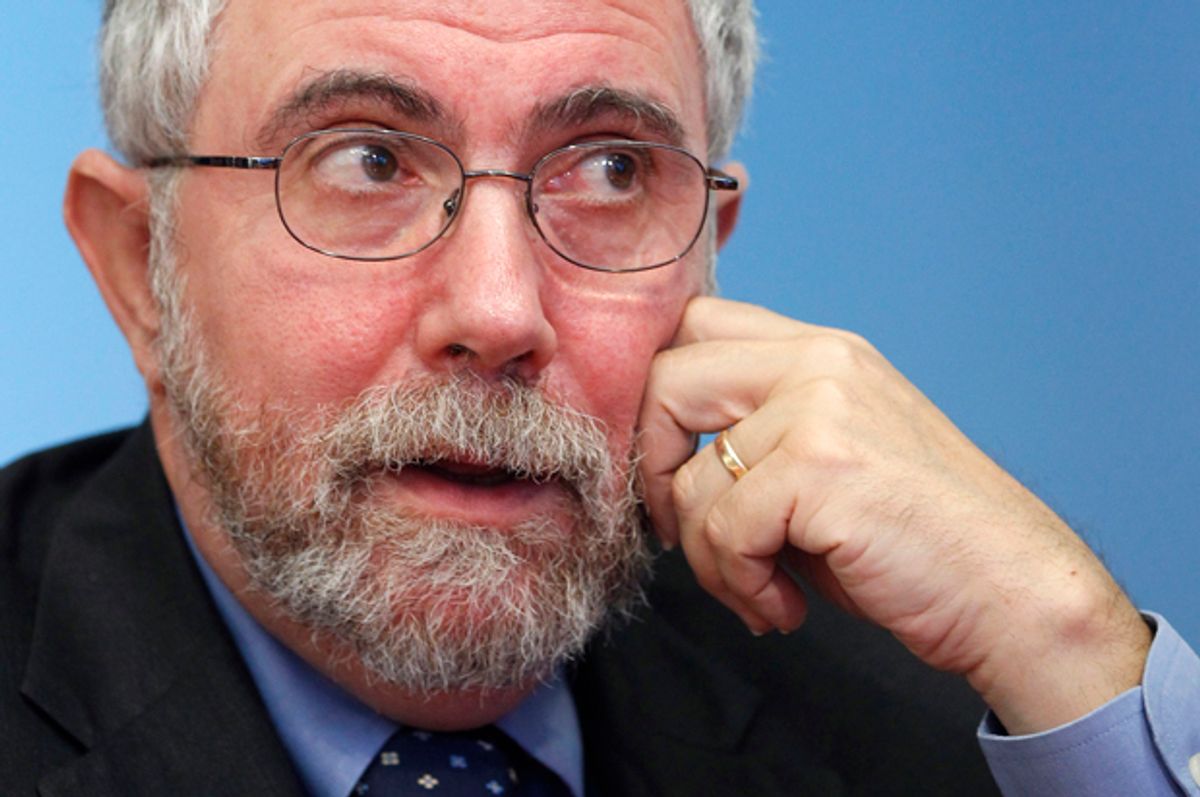Likely Republican presidential candidate Jeb Bush has spent the better part of the last week trying desperately to run away from questions about his brother's disastrous foreign policy, but New York Times columnist Paul Krugman is having none of it. Passively claiming that "mistakes were made" is, Krugman wrote, no excuse when a candidate's list of foreign policy advisers is "a who's who of mistake-makers."
It appears, Krugman argued, that being "disastrously wrong" on vital national security issues is going to be a requirement in order to make it out of the upcoming Republican primaries. He claimed that this is the effect of "extreme tribalism," wherein, "[a]nyone who tried to think through the pros and cons of the Iraq war was, by definition, an enemy of President George W. Bush and probably hated America."
It doesn't matter, he concluded, that the skeptics have been proven correct, so long as one belongs to the correct "fraternity of failure," comprised of "men and women united by a shared history of getting everything wrong and refusing to admit it."
Jeb Bush wants to stop talking about past controversies. And you can see why. He has a lot to stop talking about. But let’s not honor his wish. You can learn a lot by studying recent history, and you can learn even more by watching how politicians respond to that history.
The big “Let’s move on” story of the past few days involved Mr. Bush’s response when asked in an interview whether, knowing what he knows now, he would have supported the 2003 invasion of Iraq. He answered that yes, he would. No W.M.D.? No stability after all the lives and money expended? No problem.
Then he tried to walk it back. He “interpreted the question wrong,” and isn’t interested in engaging “hypotheticals.” Anyway, “going back in time” is a “disservice” to those who served in the war.
Take a moment to savor the cowardice and vileness of that last remark. And, no, that’s not hyperbole. Mr. Bush is trying to hide behind the troops, pretending that any criticism of political leaders — especially, of course, his brother, the commander in chief — is an attack on the courage and patriotism of those who paid the price for their superiors’ mistakes. That’s sinking very low, and it tells us a lot more about the candidate’s character than any number of up-close-and-personal interviews.
Wait, there’s more: Incredibly, Mr. Bush resorted to the old passive-voice dodge, admitting only that “mistakes were made.” Indeed. By whom? Well, earlier this year Mr. Bush released a list of his chief advisers on foreign policy, and it was a who’s-who of mistake-makers, people who played essential roles in the Iraq disaster and other debacles.

Shares